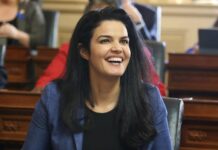In this documentary WUVA explores the nature of Commerce 2010 and 2020, the introductory accounting prerequisites for the McIntire School of Commerce. These classes are unique because they are by far the largest web-based classes at the University of Virginia, with over 700 students enrolled between the two. Furthermore, performance in these classes help decide entry into the prestigious McIntire School of Commerce.
Given the stake, size, and unique nature of these courses, it seems everyone has something to say. WUVA investigated the complaints, the benefits, and the nature of web-based courses at the University of Virginia. Lastly, we wanted to know: what does this class signal for the future?
Additional Article by Bridget Curley
Introduction to Financial Accounting and Introduction to Managerial Accounting — shortened to COMM 2010 and COMM 2020, respectively — are undergraduate courses taken by over 700 University of Virginia students each semester. Together, the two classes make up a critical prerequisite for entrance into the University’s prestigious McIntire School of Commerce. While COMM 2010 and 2020 are highly sought after by students seeking admission to the undergraduate business school, they are distinct from most other courses at the University in that they are held entirely on the internet. Students therefore never see their instructor in person, take their exams online, and appear to be divided as to the usefulness of having a strictly web-based class — especially one so crucial to their futures at the University.
Autumn Swain, a second-year student at the University who took COMM 2010, had a negative experience with the course’s unique format.
“Intro to Financial Accounting was the worst class I have taken at UVA,” she said. “No joke — the absolute worst…I would recommend that they make this class in-person, and abolish this whole online nonsense, because it doesn’t make sense.”
Swain is not alone in her opinion. TheCourseForum, an online platform in which members of the University community rate and review their classes, reports that COMM 2010 received an overall score of 1.96 out of 5.0, with copious complaints about the students’ need to “self-teach,” since those enrolled in either course never meet face-to-face with an instructor. Parents have even taken to the internet to complain, asking where their tuition dollars were being spent if not to have experienced faculty instruct their children.
Professor Roger Martin, who teaches Professional Accounting and also serves as Associate Dean for Academic Innovation, takes a different view of the online program that he runs of behalf of the McIntire School.
“I think the initial reaction [from students] is usually negative,” Martin said. “I think it’s, ‘Why are we doing this?’ Unfortunately, I think a lot of that comes from bad experiences from high school. Honestly, I think most students — once they get into the course, they’re probably surprised by the amount of resources that are available. [If] they come in with an attitude of, ‘Maybe this can work for me,’ then I think they make the best of it and find out that, ‘Gosh, this really is efficient, I really do learn the content, [and] I really do have ways to study that are perfect for me.’”
Martin cited flexibility, constant access to the course materials, and students’ ability to work at their own pace as the main benefits to the online approach. Others, such as his former colleague, Mary Middleton, take issue with the current method. Middleton used to teach introductory accounting prior to the University’s switch to web-based classes, and is “totally against” the decision.
While Middleton acknowledges the benefit of more students now being able to enroll in COMM 2010 and 2020 than can fit in a traditional classroom, she explains her view that the drawbacks are more significant.
“The downside is that you lose the other part of Jefferson’s vision, which is that intimate relationship with professors,” Middleton said. “It seems like to me that when you have a classroom experience, then — when it works well — it’s a really beautiful give-and-take between students and professors. And it’s not learning on just one side. I have learned from my students, and it’s a wonderful dynamic that can exist there…To be able to sit down with the level of maturity and discipline necessary to basically teach yourself accounting, which is a foreign language to most people, is a bridge too far…My feeling is there’s only about 15% of the students who can excel at an online class.”
According to Swain, web-based, introductory accounting courses could be damaging the reputation of the McIntire School.
“This class changed my opinion of the Commerce School,” Swain said. “Once I took this class, I realized I did not want to step in that direction whatsoever. It totally slammed the door to that for me.”
No consensus has been reached as to the best solution for COMM 2010 and 2020. Many students hope that a face-to-face option will be offered in the future, as the lack of alternatives to the web-based approach poses difficulties. Martin points out that even if the department offered an in-person choice, those classes would never be held in the intimate, 25-student settings that students might desire. However, introductory accounting was taught in lecture halls holding less than 200 students during Middleton’s tenure, and were far from the largest offered at the University. Prior to any pending changes, however, students hoping to enter the McIntire School of Commerce will need to take the courses online — and their performance will be a main factor in their prospects for admission.
















